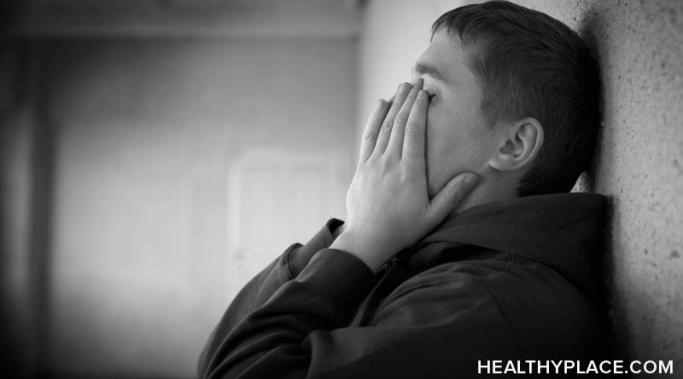A couple of weeks ago, my therapist suggested a change in my medication. I'm currently on my fifth antidepressant in two years. No matter how much a medication seems to work to treat my depression and anxiety symptoms, it seems that there always comes a time when I need to try something else. And at this point, I almost want to give up on antidepressants.
Mental Health Treatment
I'm not great at mental illness recovery. How do I know I'm getting better? A lot of the time, I can't even see progress. I think I'm improving, and then my mental health takes a dive. It feels like this will never end. And maybe it won't. I will probably deal with mental illness for the rest of my life, so I've found some useful tools for measuring my progress in mental illness recovery.
It's difficult to know what to do during a panic attack, especially because completing even the simplest tasks feels like my head might explode. When I have a panic attack, I feel helpless and terrified and can't focus on anything else. Learning to cope has been a messy process, but over time, I have gotten better at it. Here's what I do during a panic attack.
Life after depression treatment isn't what I thought it would be. I always thought the depression would fade away after my treatments concluded. Electroconvulsive therapy (ECT) had brought me out of a non-functional state. After transitioning to transcranial magnetic stimulation (TMS), I was feeling even better. My medications were finally working. I was no longer numb. I was capable of emotion again. At last, it seemed like the depression was finally gone. But life after depression treatment wasn't all roses.
In my last post, I talked about my upcoming trip to couples counseling with my boyfriend. I voiced my fears that couples therapy could be detrimental to the relationship because maybe there were more problems than I thought. I realized that rather than us having problems together, we both suffered a lot of trauma separately that created imagined problems in our head. Although I was right about the imagined problems, couples counseling opened my eyes to my own problems and gave me incentive to continue with individual therapy.
The future of mental health education is, unsurprisingly, a popular topic here at HealthyPlace. That’s because it’s largely absent from the national curriculum, even though nearly 20% of children show signs of mental illness each year. 1 Approximately 60% of those children don’t receive mental health treatment. The future of mental health education is important.
The stress of premenstrual syndrome (PMS) and the impact on women's mental health is a topic that applies to women who fear this time of the month due to extreme emotional behavior and discomfort (Hormones and Women's Mental Health). A mental disorder, such as my diagnosis of bipolar, consists of high ups and low downs -- a disorder filled with extremes. The combination of PMS and a mood disorder is riskier than PMS without a mental disorder. Recently, I have noticed as I near menstruation, depressive thoughts and emotions intensify to an extent that concerns me. To add to the apprehension of this monthly upheaval, there are serious disorders related to PMS that have major impacts on women's mental health.
Coping skills are important, and exploring unique coping mental health skills for bad days is key to recovering from a low period (You Can Practice Self-Care on a Budget). Being that no exceptional set of guidelines exist to rely upon when it comes to coping skills, it is important to explore unique ways to creatively cope with bad days.
I used to wonder, are exercise and mental health related? Can it improve your overall mental health and be as helpful as antidepressants? In my recent experience, I’ve found the answer is yes. I have been through anxiety, depression and depersonalization (feeling a sense of watching yourself and feeling disconnected to others and oneself) and exercise helped to lift my mood during the dark days. The problem is, like many others might find, it’s a constant struggle to stay motivated and develop a love for exercise for your mental health.
Over the years I have learned a lot of things to-do and not-to-do when seeing the psychiatrist. Here are a few tips for what to do in your initial visit with the psychiatrist. I wish I would have done these things sooner. If I had I probably would have received the proper diagnosis and treatment many years before I finally did.








